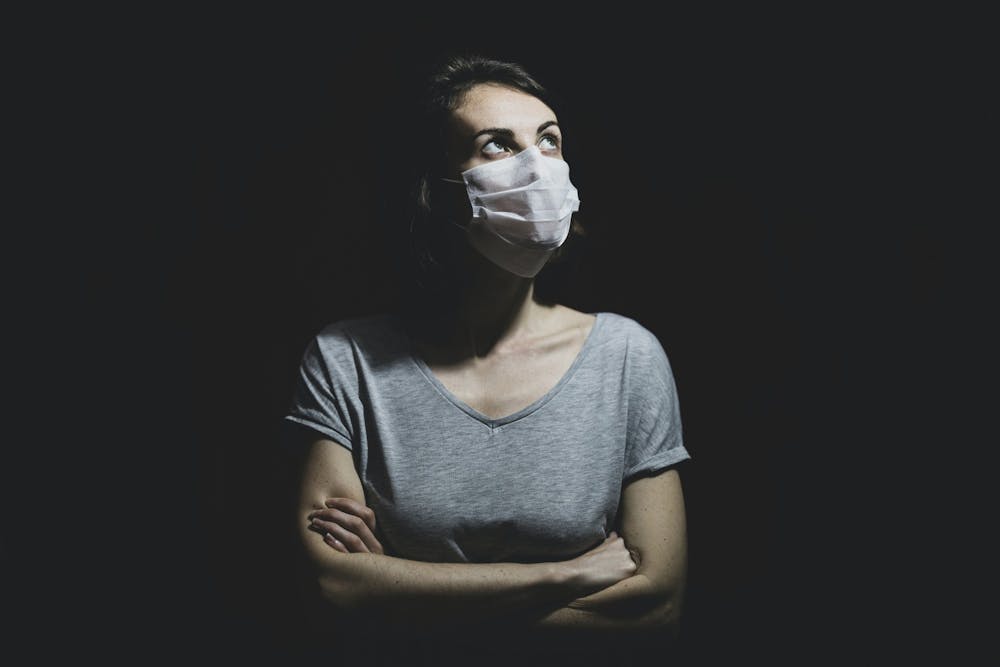Students at the University of New Mexico, already under a great deal of stress, have become overburdened with the additional stressors of the coronavirus pandemic and remote learning.
A study by the National Center for Biotechnology Information found that college students were already in a vulnerable position in terms of their mental health and that, for a vast majority, the pandemic has significantly worsened their stress, anxiety and depression.
The increased stressors have led many to seek new or revisit old outlets that may relieve that stress. These outlets can take many forms, from art to crafting to exercise — whatever helps alleviate the pressure.
Dr. Stephanie McIver, the director of counseling at Student Health and Counseling, has been helping to provide mental health services to UNM students and staff during the pandemic, such as teletherapy, substance abuse assistance and crisis intervention.
McIver said that there are many different ways of relieving stress, and it’s simply a matter of each person finding the method that works best for them. She cited exercise, meditation, journaling, painting, playing music and gardening as examples of simple activities that can help people cope in stressful times.
“Now is the time to carve out a block of time during your day to engage in some kind of relaxation ritual,” McIver said. “Any activity we can engage in that channels our energies, that’s focused, that helps to address anxiety.”
An additional study conducted through the National Center for Biotechnology Information has shown that creative outlets can help lead to better health outcomes.
Indeed, many members of the UNM community are turning to art to help manage their mental health.
Andre Ramos-Woodard, a UNM photography and art studio teaching assistant and graduate student, said he has always used art as a therapeutic escape and often expresses himself through photography.
“Art has been a good way to experience and face my own thoughts,” Ramos-Woodard said. “Getting through those losses of motivation to do any work makes it easier to finish over time.“
Since the pandemic began, with all his time occupied by the responsibilities of being an instructor as well as a graduate student, Ramos-Woodard said he has had a difficult time maintaining his motivation to make time for art.
Despite the constraints of virtual learning, Ramos-Woodard has continued to make an effort to keep his and his students’ spirits up, keeping in mind one of his past professors’ (Keith Carter) favorite sayings: “I’m interested in what you’re interested in.”
Get content from The Daily Lobo delivered to your inbox
The increased reliance on technology necessitated by the pandemic has led many to feel exhausted with spending so much time on screens as well. Ramos-Woodard said possible solutions include outdoor activities.
“I don’t think we realize how much data we get in our regular day-to-day life all around us … but now we’re relegated to gleaning all of our information from this two-dimensional tiny box,” McIver said. “I believe that that’s what’s so cognitively exhausting for us. We need to value what technology is permitting us to do, but it’s inadequate for gleaning all the information that we require and like as human beings.”
Furthermore, there are ways to connect with loved ones that don’t have to involve a Zoom call. The United States Postal Service reported an increase in letter-writing, according to a survey released in early May.
“I think it would be a beautiful thing if we could use this time to get back to letter-writing,” McIver said. “That would connect us in some really terrific ways.”
McIver is leading a new campus mental health team, which is gathering data to determine the impacts of the pandemic as well as the “racism pandemic” (a term coined by American Psychological Association president Sandra Shullman) on UNM students and faculty.
Congresswoman Deb Haaland held a roundtable in October with medical experts, including McIver, in an effort to raise awareness of how to access the mental and physical health care resources New Mexican families may need.
McIver said members of the UNM community who need services should visit mentalhealth.unm.edu and follow Student Health and Counseling on social media platforms. A number of resources are available through the website beyond counseling, including housing, food, health care and parenting resources, as well as a schedule of drop-in groups.
While these are certainly difficult times for college students, McIver emphasized her optimism in the resilience of the UNM community.
“The majority (of respondents in the mental health task force’s surveys thus far) view themselves as being able to bounce back from hardships,” McIver said. “We’re all in this together to support each other.”
Cameron Ward is a freelance reporter at the Daily Lobo. She can be contacted at culture@dailylobo.com or on Twitter @xx_cameo_xx
William Bowen is a beat reporter at the Daily Lobo. He can be contacted at culture@dailylobo.com or on Twitter @BowenWrites






